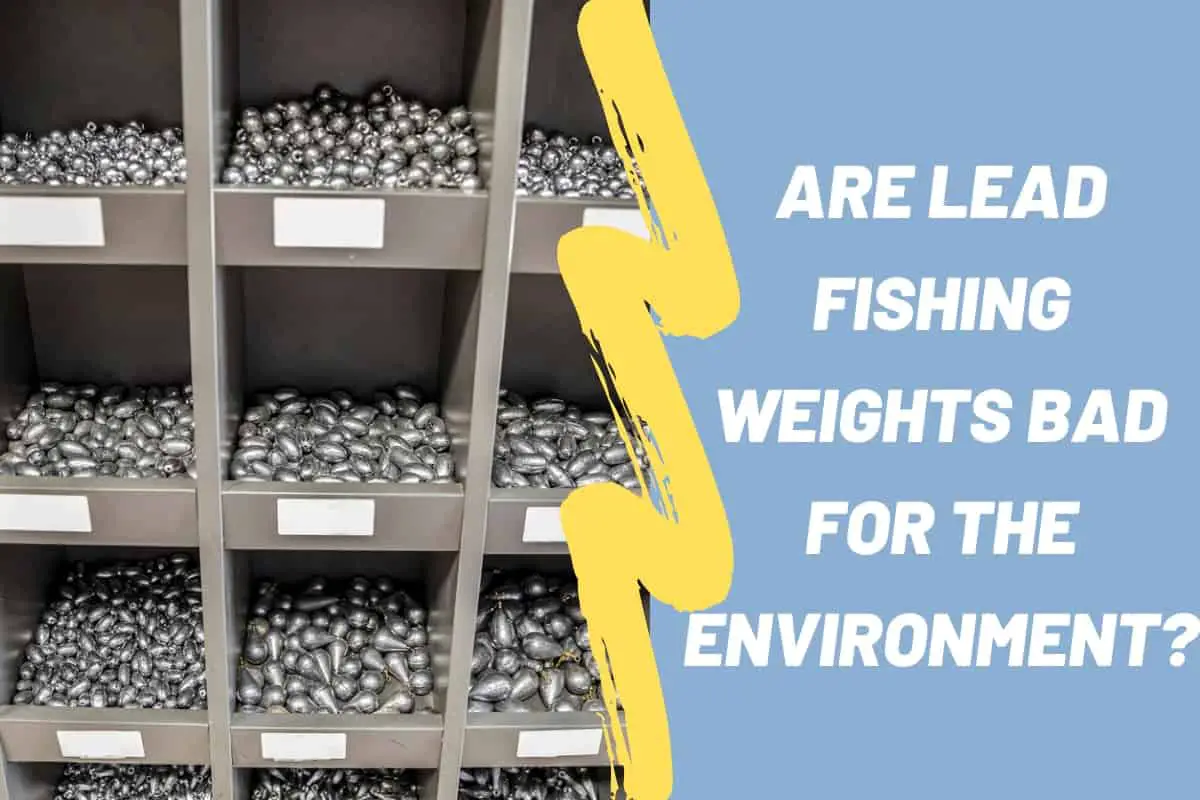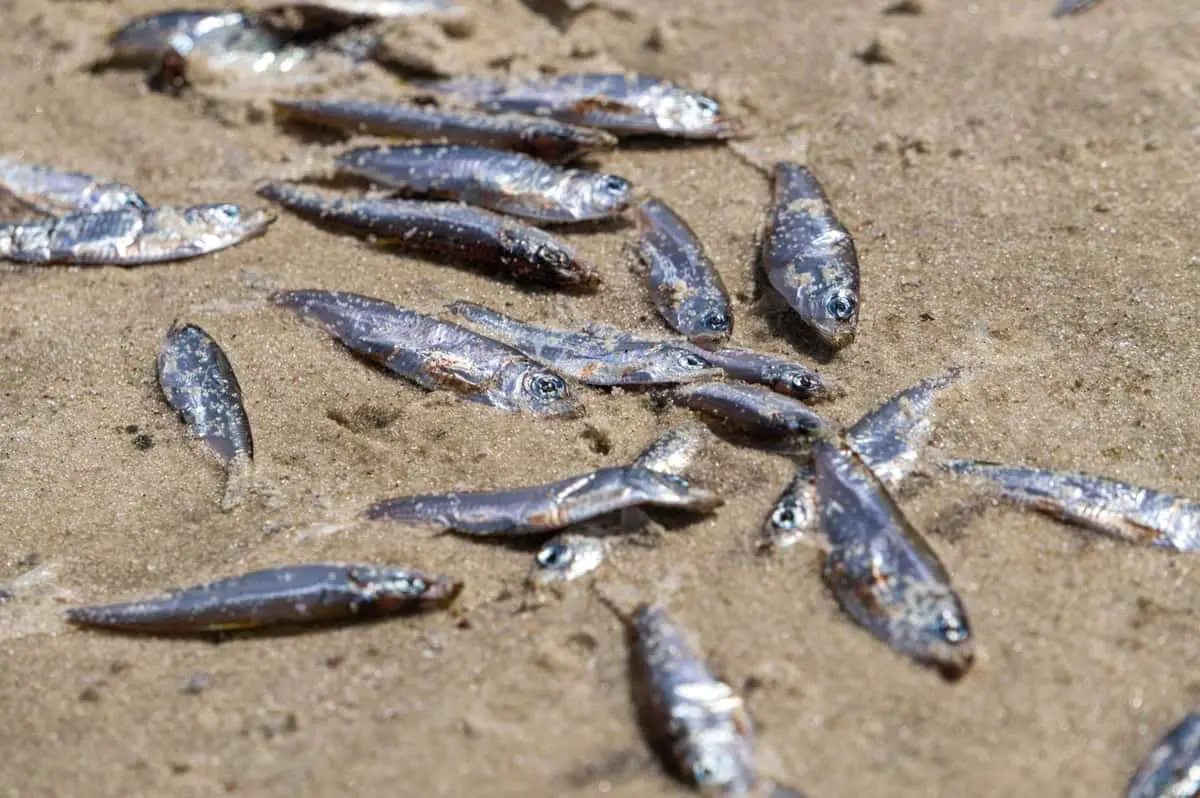
Many of us were taught that materials containing lead could result in potential health concerns in humans. This discovery pushed for many products to stop using lead. But many anglers are aware that the majority of sinkers used today are made from lead-based materials. So why is lead still being used for fishing weights, and is it harmful to the environment?
Lead-based sinkers are poisonous to wildlife. Several international studies have indicated that hundreds of tonnes of sinkers are lost in water each year. These sinkers slowly leach out lead into the water affecting fish and wildlife over time, harming them and, in some cases, lead poisoning causing death.
Many anglers today have enjoyed the benefits that lead fishing weights have provided for years. But now we understand the impact of lead fishing weights on the water we swim in, the fish we eat, and the other wildlife that drink the water.
I hope this article will bring awareness to anglers on the impact of lead fishing weights on the environment. This emerging topic is quite complex, but it’s important to be aware of these issues as a responsible angler.
Why Does The Fishing Industry Still Use Lead For Sinkers?
Since realizing how toxic and poisonous lead is to the environment, its usage has been steadily decreasing. But why does the fishing industry continue to use lead sinkers?
When it comes to fishing, lead provides many benefits to the angler and the manufacturers. For the anglers, the high density of lead allows sinkers to be smaller for their weight which helps with casting, increasing the sink rate for your fishing line.
The low melting point makes it easy to produce sinkers, combined with the low cost of lead, makes it a perfect choice for the manufacturer. These cost savings are also passed down to the anglers.
Using other material would surely result in a larger sinker making it harder to cast, lowers the sink rate, and with different manufacturing processes would most likely result in higher costs at the store.

What is the Environmental Impact of Using Lead Based Fishing Weights?
There have been several international studies conducted investigating the environmental impact of using lead weights for fishing. The issues have less to do with using lead weights, but the long-term impact on the environment when these lead weights are lost in the water.
A Canadian study found that approximately 460 tonnes of lead sinkers and jigs are lost each year in Canadian waters. Under the right waters conditions, such as acidic water, the lead particles will erode and dissolve into the water. These lead particles get consumed by small organisms in the water, fish, and other wildlife that drink the water like birds.
Birds seem to be affected the most by the increasing lead toxicity levels. In the US state of New Hampshire, 48% of the deaths of adult loons were accounted to lead poisoning. Further international studies have found that over twenty species in North America, including swans, cranes, waterfowl and loons, are at severe risk.
Not only is this bad for the environment, but it’s also bad for you. If smaller orgasms are eating lead particles found in the water, the fish you catch and eat will also have higher lead levels. Humans are also subjected to lead poisoning, especially with children.

Are Lead Based Sinkers Banned?
There is a slow and gradual push from all corners of the world to stop the use of lead sinkers, but no sustainable replacement has been provided.
There are fishing weights in the market that you can use that are made up of alternative materials, but they have not replaced lead weights yet because they have other issues regarding manufacturing on a larger scale.
But the effects of using lead fishing weights have been starting to get recognized by some of the largest countries in the world. These countries have started to propose some restrictions on lead-based sinkers to create incentives to come up with better alternative materials to make sinkers from.
Are Lead Based Sinkers Banned in the United States?
The legislation regarding the use and selling of lead sinkers varies from state to state.
In most states, it’s illegal to use lead jigs and sinkers weighing less than 1 oz. For example, in New Hampshire, a new law took effect in June 2016 that enforces this law. New York had previously banned selling small lead sinkers in 2004 due to its effect on common loons. On the other hand, Massachusetts has only made it illegal to use the weights, but there is no law against selling them. Perhaps more surprisingly, Michigan has not imposed any restrictions whatsoever other than strongly encouraging the use of lead-free alternatives.
Are Lead Based Sinkers Banned in Canada?
Legislation regarding lead-based sinkers varies depending on the province. The Canadian federal government has made it illegal to use any lead-based sinker or jig weighing that are 1.7 oz or 0.79 inches in length or less in national parks.
The weight and size requirement helps with preventing birds from eating these smaller weights. You will need to follow your individual province on the updated regulations because the rules keep on changing.
Are Lead Based Sinkers Banned in the United Kingdom?
The situation in the United Kindom is much the same. Great Britain banned the use of lead sinkers under 1 oz in 1987 after it was discovered that lead poisoning resulted in over 4,000 swans died.
A study by Franson in 1999 concluded that the poisoning of swans fell by 70% in the Thames Valley following the enactment of this law. Since then, lead fishing weights under 1 oz remained banned.
Are Lead Based Sinkers Banned in Australia?
Australia has made some effort to tackle this problem, like the rest of the international scene. However, solid restrictions are not in place, and the government instead highly encourages anglers to use lead-free alternatives.
It’s fair to say there’s not much action going on down under.
What Are Some Lead Based Handling Tips?
You might be thinking as an angler is, “could I get sick from handling lead sinkers and jigs?” The chances of an angler getting sick from handling a lead weight is very small, assuming you’re not licking your hands after handling them.
The amount of time an angler actually spends touching a sinker or jig is very small compared to the workers in the old smelting plants or the paint in an old home. That being said, there are definitely things you can do to handle lead sinkers safely.
- Wash your hands immediately after handling before eating, drinking, or accidentally touching your face.
- Don’t purposely start smacking weights togethers and toss them around. You don’t want to cause damage to the weights and allow lead partciles to easily break off from the weight.
- Try not to place lead weights on your clothes when handling them. It might seem tempting to do that espically if your are attaching a leader to your weight but you run the risk of lead particles being on your clothes which you might accidentally touch and get on your hands.
- If you see a whitish powder on the sinkers, then the lead particiles have started to oxidized making it easier to breath in lead particales. You’ll want to clean your lead weights before you start fishing with them. I wrote an article on how to clean your weights if you want guidance on how to do that.
More importantly, keep children away from lead weights as they are more likely to touch the weights and then start touching their faces.
What Are The Alternatives to Lead Based Sinkers?
So, what should you replace lead sinkers with?
There is a chance that your local tackle store will carry some alternatives to the traditional lead sinkers. They might cost more than the lead sinkers, but it will be worth it. You want to look for sinkers made from:
- Ceramic
- Bismuth
- Brass
- Tungsten
- Tin
- Steel
- Stone
- Terpene Resin Putty
- Polypropylene
Even though many experts are looking at these materials as a possible substitute to lead sinkers, little is known in the long-term impact these will have on the environment at a larger scale with the expectation of stones.
What is the Final Weigh In?
Now that we’ve got you hooked, it’s time for the final weigh-in. The environmental impacts of using lead sinkers have been proven time and time again. Lead is toxic, poisonous, and a killer of wildlife.
It has been proven not easy to find a suitable replacement for lead-based materials that provide anglers with the same experience and cost point. That being said, there are alternatives in the market that you can use.
This move to get away from lead weights has been catching some on wind recently, and I hope it continues. As many countries worldwide start to change regulations slowly, angler’s awareness of the impact of lead weights on the environment will rise and push for more rapid change.
Happy Fishing & Tight Lines

